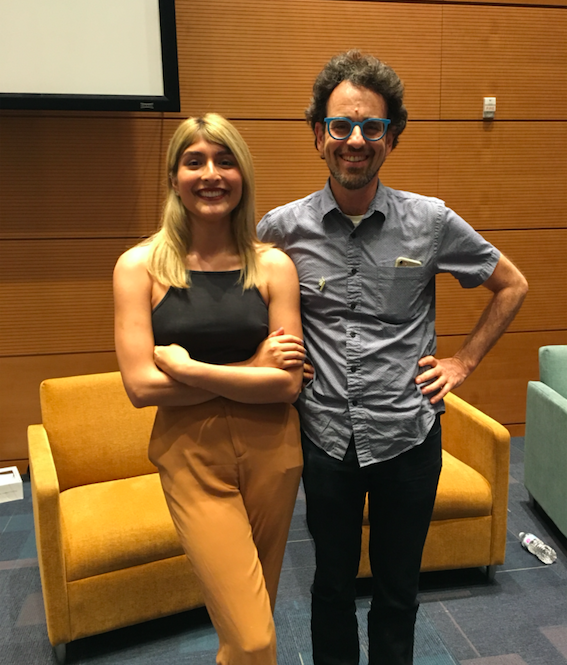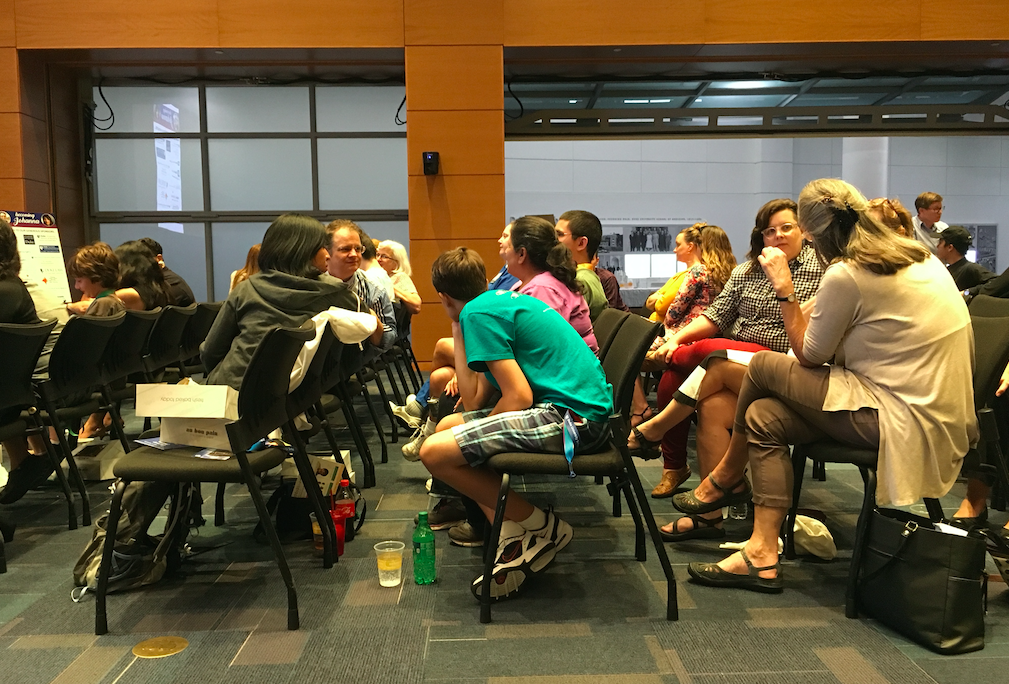Following Duke’s Oct. 4 screening of the 2016 documentary, “Becoming Johanna,” students, faculty, staff and community members in the audience were eager to ask questions of the panel, which included the film’s director/producer, Jonathan Skurnik, and even the film’s transgender subject, Johanna Clearwater herself.

Johanna Clearwater pictured with the film’s director/producer Jonathan Skurnik
The film showcases the heart-wrenching and empowering story of a latina transgender teenager growing up in Los Angeles. After beginning her transition at age 16, Johanna faced the rejection of her mother and intense opposition from school authorities. Soon after, she was abandoned by her family and entered the foster care system, where she was lucky to find a much more supportive family environment. After changing schools, she connected on a personal level with her school principal, Deb, who helped Johanna find a community where she felt understood and supported. This success story of self-advocacy and resilience in the face of abandonment and exclusion highlights the daily struggles of many transgender teenagers. For these individuals, becoming comfortable in their own skin is the end of a long and demanding journey, often made even more difficult by the ignorance and cruelty of society. Finding and following the path to authentic expression takes a huge amount of courage, as this route is often layered with adversity.
Before the screening, Duke clinical social worker Kristin Russel put the film in context for the audience, inviting our reflection with her words: “A well told story… is really what can help us bridge the unfortunate distance that can remain uncrossed and misunderstood if such stories are silenced.” Chief Diversity Officer for the School of Medicine Judy Seidenstein then introduced the film and facilitated the panel discussion.
After the film, the audience was invited to join the conversation. Questions came from every demographic of the crowd, and provided a nice sampling of opinions. Many audience members pointed out how important these conversations are, especially in a conservative state like North Carolina that has so recently struggled with the protection of LGBTQ rights with last year’s ‘Bathroom Bill.’ Specifically, the questions and comments from hospital staff and faculty from the School of Medicine gave a nice insight into the direction of support on campus for sexual and gender diversity.

Audience members reflect on the film with those nearby
Cheryl Brewer, the Associate Vice President of Nursing, told the room about the inclusion work that she is leading in the School of Nursing. They have developed a new core curriculum to promote acceptance and support of gender and sexual diversity through situational trainings. She noted that there have been some people that struggle with implicit biases more than others, but that the program has been a success overall.
Russell spoke briefly about her work with transgender and gender diverse youth in the clinical setting and emphasized the importance of having family support. Legally and psychologically, maintaining family involvement and support of patients is essential for treatment.
Events like this one reflect ongoing efforts to support sexual and gender diversity within and beyond Duke, by promoting conversation and increasing empathy through storytelling. Duke is well on the way to becoming a much more inclusive community, where everyone can feel a sense of belonging.
Guest post by Anne Littlewood
